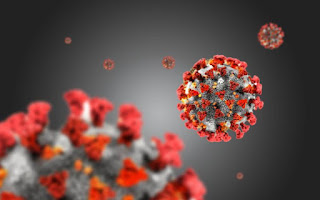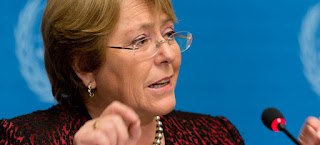Six treaty bodies are scheduled to elect half of their members during this year. To date five elections have taken place. The 6th (SPT) won't occur until October. This seems like an appropriate time to take a snapshot of where we are. Gender balance has improved slightly overall, but more importantly it has become more balanced on two of the Committees who were most out of balance (CRPD & CEDAW).
CESC
Members are
elected by ECOSOC. Elections were initially held in April when 7 candidates
were elected; 2 slots were not filled at that time (1 from Asia, 1 from Latin
America). A second round of elections are to be held in July 26-27, to fill
these remaining spots.
Elected so far:
Mr. Asraf Ally
CAUNHYE (Mauritius) (new member)
Mr. Peters Sunday
Omologbe EMUZE (Nigeria) (new member)
Ms. Heisoo SHIN
(Republic of Korea) (re-elected)
Mr. Olivier DE
SCHUTTER (Belgium) (re-elected)
Mr. Renato
ZERBINI RIBEIRO LEÃO
(Brazil) (re-elected)
Mr. Rodrigo UPRIMNY
YEPES (Colombia) (re-elected)
Mr. Aslan
Khuselnovich ABASHIDZE (Russian Federation) (re-elected)
Notes:
·
1
woman, 6 men, replacing 2 women & 7 men, with 2 spots still open
·
Total
committee composition right now is 4 women, 12 men, with two spots still to be
filled
·
2
new members; 5 re-elected
-->
·
Terms
for these members begin 1/1/2019
CEDAW
On June 7, 2018 elections were held to replace 12 members of CEDAW. Results were as follows:
-->
Name of candidate
|
Nationality
|
|
|
Peru RE-ELECTED
|
|
|
Japan NEW MEMBER
|
|
|
Saudi Arabia. NEW MEMBER
|
|
|
Algeria RE-ELECTED
|
|
|
Egypt RE-ELECTED
|
|
|
Georgia RE-ELECTED
|
|
|
Mauritius RE-ELECTED
|
|
|
Spain NEW MEMBER
|
|
|
Trinidad and
Tobago. NEW MEMBER
|
|
|
Azerbaijan. NEW MEMBER
|
|
|
Bulgaria NEW MEMBER
|
|
|
Burkina
Faso. NEW MEMBER
|
*5 new
members were elected; 7 were re-elected
*One
more man has been elected to the Committee this time (Mr. Elgun Safarov, of Azerbaijan), so the gender
balance is now 2 men, 21 women. This is the first time in recent memory that
there have been more than one man serving on the Committee at the same time.
*New
members will begin serving 1/1/2019
CRPD
Elections were held on June 12, 2018.
Final elected slate:
·
Ms.
Rosemary KAYESS (Australia) NEW MEMBER
Gender balance is now 6 women, 12 men (formerly 1 woman, 17 men)
-->
Geographic balance is also improved – the
deficiency of experts from the Latin American & Caribbean region is
rectified. There are now 3 members from this region on the Committee (formerly only one member came from this region)
Key developments to note:
a. Improved representation of women
b. Improved geographic balance
c. Entire conference was webcast, two full days of activities and events
d. Focus of many interventions was on implementation
e. Key cross cutting theme – data collection
– “Promoting high-quality disability statistics and disaggregation of data by
disability status for the full realization of the rights of persons with
disabilities”
f. Press conference held on day 1 re SDGs
g. 176 of 177 state parties participated in
the elections
h. Several side events
-->
i. Many states shared their experiences in implementing the Convention; raising awareness; model and pilot projects; best
practices
CCPR
Elections were held June 14, 2018.
9 members were elected:
*
Mr. Yadh BEN ACHOUR (Tunisia).RE-ELECTED
*
Mr. Christopher BULKAN (Guyana) NEW MEMBER
*
Mr. Shuichi FURUYA (Japan) NEW MEMBER
*
Mr. Duncan LAKI MUHUMUZA (Uganda) RE-ELECTED
*
Ms. Photini PAZARTZIS (Greece) RE-ELECTED
*
Mr. Hernán QUEZADA CABRERA (Chile) NEW MEMBER
*
Ms. Vasilka SANCIN (Slovenia) NEW MEMBER
*
Ms. Hélène TIGROUDJA (France) NEW MEMBER
*
Mr. Gentian ZYBERI (Albania). NEW MEMBER
Summary:
* The newly elected members included 3 women and 6 men. The Committee now has 6 women and 10 men. Two vacancies are to be
filled by appointment.
*
3 re-elected; 6 are new members
*
The terms of these new members will begin 1/1/2019 and extend 4 years, to
12/31/2022.
*
Russia, USA candidates were not elected
*
Ms. Anja Seibert-Fohr (Germany) resigned effective 3/1/2018. Her term was set
to expire 12/31/2020. Presumably the German government will appoint a
replacement.
*Mr.
Yuji Iwasawa (Japan), Chair of this Committee, was elected to the International
Court of Justice in June. He will leave his post in this Committee and be
replaced by appointment. One of the vice
chairs will replace him as chair.
*
The proceedings were not webcast. First results came out unofficially on
Twitter.
*
JBI tweet: In a dramatic election to #HumanRights Committee, which monitors CivilPoliticsl
Covenant, #US candidate defeated in runoff 2nd round. First time US has lost
such an election to #UN treaty body. 17 candidates for 9 slots. 8 elected 1st
round. #Chile defeats US 101-63 in 2nd round
*
164 total ballots cast, of a possible 171 state parties
-->
CRC
On June 29, 2018 nine members were elected to the Committee on the Rights of the Child.
·
Ms. Suzanne AHO-ASSOUMA (Togo) (re-elected)
·
Ms. Hynd AYOUBI IDRISSI (Morocco) (re-elected)
·
Mr. Bragi GUDBRANDSSON (Iceland) (new member)
·
Mr. Philip D. JAFFE (Switzerland) (new member)
·
Mr. Gehad MADI (Egypt) (re-elected)
·
Mrs. Faith MARSHALL-HARRIS (Barbados) (new member)
·
Mr. Clarence NELSON (Samoa) (re-elected)
·
Mr. José Angel RODRÍGUEZ REYES (Venezuela) (re-elected)
·
Ms. Aïssatou Alassane Moulaye SIDIKOU (Niger) (new member)
Notes:
·
4 new
members; 5 re-elected
·
5
women; 4 men.
·
The
Committee composition as a whole is now 10 women & 8 men (formerly 9 women
& 9 men)
·
New members
begin their terms on March 1, 2019
·
Note
that Niger has an expert elected on the Committee for the 1st time;
it is noteworthy that they have submitted reports in 2018 to two treaty bodies
where the report had been overdue, respectively, 18 and 22 years (CAT & CCPR)
Gender balance
Gender balance has improved overall, including in two of the Committees most in need of better balance (CRPD and CEDAW).
Before the elections: As of October 2017 the composition was as follows:
Treaty
body
|
women
|
percent
|
comment
|
next
election
|
CRPD
|
1 of 18
|
6%
|
under balanced
|
June 2018
|
CMW
|
3 of 14
|
21%
|
under balanced
|
June 2019
|
CESC
|
5 of 18
|
28%
|
under balanced
|
July 2018
|
CED
|
3 of 10
|
30%
|
under balanced
|
June 2019
|
CAT
|
4 of 10
|
40%
|
|
Oct 2019
|
CERD
|
8 of 18
|
44%
|
|
June 2019
|
CCPR
|
8 of 18
|
44%
|
|
June 2018
|
SPT
|
12 of 25
|
48%
|
|
Oct 2018
|
CRC
|
9 of 18
|
50%
|
|
June 2018
|
CEDAW
|
22 of 23
|
96%
|
overbalanced
|
June 2018
|
TOTAL
|
75 of 172
|
43.6%
|
|
|
* Since CEDAW has an overbalance of women
(96%), it brings the overall average up (to 43.6%). When you remove CEDAW from
the count the system-wide average becomes 35.5%.
Now the composition will look like this once new members begin their terms in 2019:
Treaty
body
|
women
|
percent
|
comment
|
next
election
|
CMW
|
3 of 14
|
21%
|
under balanced
|
June 2019
|
CESC
|
4 of 16*
|
25%
|
under balanced
|
July 2018 (2 openings)
|
CED
|
3 of 10
|
30%
|
under balanced
|
June 2019
|
CRPD
|
6 of 18
|
33%
|
under balanced
|
June 2020
|
CCPR
|
6 of 16**
|
37.5%
|
under balanced
|
June 2020
|
CAT
|
4 of 10
|
40%
|
|
Oct 2019
|
CERD
|
8 of 18
|
44%
|
|
June 2019
|
SPT
|
12 of 25
|
48%
|
|
Oct 2018
|
CRC
|
10 of 18
|
55%
|
|
June 2020
|
CEDAW
|
21 of 23
|
91%
|
overbalanced
|
June 2020
|
TOTAL
|
77 of 168
|
46%***
|
|
|
*two vacancies in CESC; to be filled in an election at ECOSOC in late
July 2018
**two vacancies in CCPR at the present time; replacements to be
appointed by the sponsoring countries of the members who have resigned
***
Since CEDAW has an overbalance of women (91%), it brings the overall average up
(to 46%). When you remove CEDAW from the count the system-wide average becomes 40%.
Conclusion
In addition to the above-described new members, several Committees saw several veteran members replaced, making for many new faces in upcoming sessions of the treaty bodies. Kudos to those NGOs who were active in the elections this year including the members of TB-net who maintained a website of candidate interviews and statements.
-->



